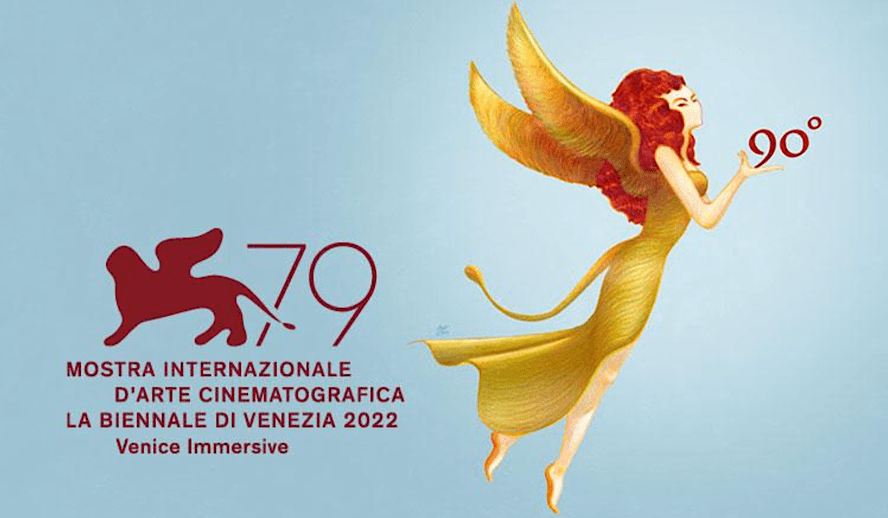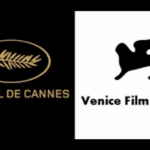Table of Contents

Video Version of this Article
Photo: Venice Film Festival
The Cannes Film Festival is the most prestigious of its kind in the world, but the Venice Film Festival isn’t far behind. Founded in 1932, the Venice Film Festival is the oldest international film festival in the world, and it’s still going strong; like anything that claims to be the “first” in anything, Venice has the weight of history on its shoulders, and to this day it represents a beacon in the world of Cinema. Filmmakers from all over the world show their films here, and some of the voices not already established go on to be titans in the industry, from Ang Lee and Alfonso Cuarón to Agnès Varda. Much like Cannes, Venice has a top award, only instead of the Palme d’Or it’s the Golden Lion, one of the highest honors a film can earn.
Related article: The Hollywood Insider’s CEO Pritan Ambroase: “The Importance of Venice Film Festival as the Protector of Cinema”
Many films took home the Golden Lion over the years, and a few of them would even go on to win the Academy Award for Best Picture (Chloé Zhao’s ‘Nomadland’ being the latest to win both), so it’s certainly an award you would ignore at your own peril. We did a similar article for Cannes, recommending some previous Palme d’Or winners, and now we’re doing the same for Venice — and, like that other article, we’re making sure to avoid films by American directors. The beauty of the Venice Film Festival, and others like it, lies partly in it being international, after all. Maybe when the festival starts on August 31, you’ll have checked out a few of these movies (or all of them) and expanded your moviegoing horizons a bit.
Things to do:
- Subscribe to The Hollywood Insider’s YouTube Channel, by clicking here.
- Limited Time Offer – FREE Subscription to The Hollywood Insider
- Click here to read more on The Hollywood Insider’s vision, values and mission statement here – Media has the responsibility to better our world – The Hollywood Insider fully focuses on substance and meaningful entertainment, against gossip and scandal, by combining entertainment, education, and philanthropy.
The Hollywood Insider’s CEO Pritan Ambroase: “The Importance of Venice Film Festival as the Protector of Cinema”
‘Rashomon’ (1951)
Akira Kurosawa is one of the most famous figures in international Cinema, having made his debut in the 1940s and working his way to becoming one of Japan’s most gifted and famous auteurs. ‘Rashomon’ was released in Japan in 1950, but it ran in competition at Venice the following year, putting Kurosawa on the world stage. Short but surprisingly complex, ‘Rashomon’ details a chance encounter with a bandit in the woods and a tale of murder, as told from various perspectives. Just as important as Kurosawa winning the Golden Lion was audiences from around the world being introduced to legendary Japanese actor Toshirô Mifune, who had previously worked with Kurosawa on a few features and who would come to define most of Kurosawa’s output in the ‘50s and ‘60s. Mifune plays the bandit, the man accused of committing murder, and he gives only one of several testimonies as to what really happened on that fateful day. Don’t let its short runtime and simple premise fool you — ‘Rashomon’ is a deeply human work of Cinema, not only exploring the ways in which people lie to each other but the ways in which these same people can perform feats of heroism. While it may not be his best film, and it’s certainly not his most grandiose (being quite the opposite of grandiose, really), ‘Rashomon’ still stands as undoubtedly the best entry point for getting into Kurosawa.
Related video: Come Behind The Scenes of ‘Elvis’ | Austin Butler, Tom Hanks and Baz Luhrmann
‘Ivan’s Childhood’ (1962)
Jumping from Japan to Russia, we have Andrei Tarkovsky, who unlike Kurosawa was not already a veteran in his own country; indeed, his 1962 feature ‘Ivan’s Childhood’ was his debut, and he was barely out of his twenties when he won the Golden Lion that year. ‘Ivan’s Childhood,’ if viewed with hindsight, can strike one as an outlier in Tarkovsky’s filmography, not only being the shortest of his features but being by far the least philosophical. The film is pretty conventionally structured by Tarkovsky’s standards, being a war film and a coming-of-age story about a child soldier working for the Soviets during World War II. The real strength of ‘Ivan’s Childhood’ comes not in its storytelling but in Tarkovsky’s already immense talent as a visual poet, his images of night and fog in wartime being deeply evocative. What Tarkovsky’s debut lacks in complexity it makes up for with an emotional intensity rarely seen in the director’s future projects, resulting in one of the best war movies of its era. Whereas other Golden Lion winners show directors at the height of their powers, ‘Ivan’s Childhood’ shows the promising start of someone who would go on to do bigger and even better things — which is not to say it isn’t worth watching.
32 Facts of Venice Film Festival: Notable Points on Oldest & Most Prestigious Film Event and Oscar-Decider
Related article: MUST WATCH – The Hollywood Insider’s CEO Pritan Ambroase’s Love Letter to Black Lives Matter – VIDEO
Related article: The Masters of Cinema Archives: The Hollywood Insider Pays Tribute to ‘La Vie En Rose’, Exclusive Interview with Director Olivier Dahan
Related article: – Want GUARANTEED SUCCESS? Remove these ten words from your vocabulary| Transform your life INSTANTLY
‘Au Revoir les Enfants’ (1987)
When you think of the great French directors, you probably think Jean-Luc Godard, Agnès Varda, and François Truffaut — all good choices, but I really think Louis Malle ought to be part of that conversation. Malle didn’t make perfect movies like his contemporaries, but his movies are often earnest, inventive, kinetic, and possessing a disarming maturity not too often found in films by his contemporaries; he’s also evidently more open to working outside his comfort zone, with a good portion of his filmography being American productions. One of the few directors to win the Golden Lion more than once, Malle already had one under his belt with his 1980 American film ‘Atlantic City,’ a darn fine movie in its own right, but we’re going with his 1987 French masterpiece ‘Au Revoir les Enfants.’
Related article: 32 Facts of Venice Film Festival: Notable Points on Oldest & Most Prestigious Film Event and Oscar-Decider
Like ‘Ivan’s Childhood,’ ‘Au Revoir les Enfants’ is a World War II narrative, but unlike any you’ve seen before, being set at a boarding school in Nazi-occupied France. The film is deeply autobiographical, with Malle reflecting on his own childhood and having lived through the Nazi occupation, even witnessing hidden Jewish students at his school being rounded up and sent to concentration camps. Don’t let the calmness of its drama fool you, ‘Au Revoir les Enfants’ is a devastating portrait of childhood trauma, and it represents Malle at his most personal as well as his best.
Related video: EVOLUTION: Every Tom Cruise Role From 1981 to 2021, All Performances Exceptionally Poignant
Related article: A Tribute to Johnny Depp: The Actor and Musician Who Defined Range
Related video: EVOLUTION: Every Johnny Depp Role From 1984 to 2020, All Performances Exceptionally Poignant
Related article: A Tribute to the Hero & President Volodymyr Zelenskyy: Comedian/Actor, Ukraine’s President and Heroic Leader
‘Brokeback Mountain’ (2005)
Ang Lee was one of the bright up-and-coming Taiwanese directors of the ‘90s, already winning the Golden Bear at the Berlin Film Festival twice, and he was expected to win the Oscar for Best Director for ‘Crouching Tiger, Hidden Dragon.’ After the incredibly divisive reception of ‘Hulk’ in 2003, Lee returned with the film that would earn him his first Golden Lion and his first Oscar for Best Director: 2005’s ‘Brokeback Mountain.’ Controversial in its day, the film now stands as a genuinely heartwarming (if also a bit on the tame side) depiction of a decades-long love affair between two men in the wilderness of mid-20th century Wyoming. Jake Gyllenhaal and the late Heath Ledger star as manly men trying to hide their affection in an era (an era not too different from today, mind you) when homosexuality was basically a death sentence. While it does lean on the side of melodrama at times, ‘Brokeback Mountain’ is grounded by the lead performances, and perhaps most importantly by Lee’s steady hand as director; his attempt at a superhero movie, ‘Hulk,’ was criticized harshly for its glacial pacing, but that same lethargy works well with ‘Brokeback Mountain.’ Lee would go on to win a second Golden Lion only two years later with his Taiwanese production ‘Lust, Caution,’ which sadly I have not yet seen; it could be another strong recommendation.
Related article: What Can We Expect from Noah Baumbach’s ‘White Noise’? | Venice Film Festival 2022 Opening Night Film
‘Roma’ (2018)
One of the most recent winners, and perhaps the subject of the biggest Oscar upset in the past few years, has to be Alfonso Cuarón’s ‘Roma.’ As you may recall, ‘Roma’ was one of the biggest arthouse films to see a Netflix release in the States, and it was also Cuarón’s return to filmmaking in his native Mexico, after working in Hollywood for nearly twenty years. ‘Roma’ is a humanistic and deeply sad film — a sort of coming-of-age story that reflects Cuarón’s life in the ‘70s, being his most challenging and mature work to date. Cuarón not only directed ‘Roma’ but acted as director of photography, ultimately winning Oscars for Best Director and Best Cinematography as a result. ‘Roma’ stands out as one of the most important releases in recent years from an industry standpoint, being one of Netflix’s strongest efforts to make its name in the arthouse circuit, as well as helping open the door for non-English films to win big at the Oscars — a door that would be blown straight off its hinges with ‘Parasite’ the following year. Shot in gorgeous black-and-white and exhibiting all the signs of someone who has mastered his craft, ‘Roma’ is a movie you should do yourself the favor of watching if you haven’t already.
Related article: EVOLUTION: Every Henry Cavill Role From 2001 to 2021, All Performances Exceptionally Poignant
Related article: EVOLUTION: Every Chris Evans Role From 1997 to 2020, All Performances Exceptionally Poignant
Related article: #metoo Revolution: Powerful Questions That Need Answers
Related article: FACT-CHECKED Series: Timothee Chalamet and 32 Facts about The Young Superstar
The Importance of the Golden Lion in Hollywood
Of the films to win the Oscar for Best Picture in the last five years, two of them also won the Golden Lion: Guillermo del Toro’s ‘The Shape of Water’ and Chloé Zhao’s ‘Nomadland.’ What does this tell us? Does it mean anything? Maybe it means that, after having been so homogenous with the films and filmmakers being deemed worthy of recognition, the American film awards circuit is finally opening up more to outside voices. Zhao and del Toro are non-American directors, being only two of several non-American filmmakers who have won the Oscar for Best Director in the past decade; indeed, the only American filmmaker to do so since 2012 is Damien Chazelle. It’s become increasingly clear to those not already in the knowledge that most of the best talent in the industry comes from outside the US, and with ‘Parasite’ as the first non-English film to win Best Picture, Academy voters’ excuses for snubbing “foreign” Cinema have dwindled. While it’s still baffling to this day that ‘Roma’ lost to ‘Green Book,’ rightfully deemed one of the worst Academy decisions in recent years, we’re also looking towards a future where such regressive decisions will also dwindle. The film to win Best Picture come awards season could very well be the one to take home the Golden Lion; we don’t have to wait long to see what it might be.
By Brian Collins
Click here to read The Hollywood Insider’s CEO Pritan Ambroase’s love letter to Cinema, TV and Media. An excerpt from the love letter: The Hollywood Insider’s CEO/editor-in-chief Pritan Ambroase affirms, “We have the space and time for all your stories, no matter who/what/where you are. Media/Cinema/TV have a responsibility to better the world and The Hollywood Insider will continue to do so. Talent, diversity and authenticity matter in Cinema/TV, media and storytelling. In fact, I reckon that we should announce “talent-diversity-authenticity-storytelling-Cinema-Oscars-Academy-Awards” as synonyms of each other. We show respect to talent and stories regardless of their skin color, race, gender, sexuality, religion, nationality, etc., thus allowing authenticity into this system just by something as simple as accepting and showing respect to the human species’ factual diversity. We become greater just by respecting and appreciating talent in all its shapes, sizes, and forms. Award winners, which includes nominees, must be chosen on the greatness of their talent ALONE.
I am sure I am speaking for a multitude of Cinema lovers all over the world when I speak of the following sentiments that this medium of art has blessed me with. Cinema taught me about our world, at times in English and at times through the beautiful one-inch bar of subtitles. I learned from the stories in the global movies that we are all alike across all borders. Remember that one of the best symbols of many great civilizations and their prosperity has been the art they have left behind. This art can be in the form of paintings, sculptures, architecture, writings, inventions, etc. For our modern society, Cinema happens to be one of them. Cinema is more than just a form of entertainment, it is an integral part of society. I love the world uniting, be it for Cinema, TV, media, art, fashion, sport, etc. Please keep this going full speed.”
More Interesting Stories From The Hollywood Insider
– Want GUARANTEED SUCCESS? Remove these ten words from your vocabulary| Transform your life INSTANTLY
– A Tribute to Martin Scorsese: A Complete Analysis of the Life and Career of the Man Who Lives and Breathes Cinema
– Do you know the hidden messages in ‘Call Me By Your Name’? Find out behind the scenes facts in the full commentary and In-depth analysis of the cinematic masterpiece
– A Tribute To The Academy Awards: All Best Actor/Actress Speeches From The Beginning Of Oscars 1929-2019 | From Rami Malek, Leonardo DiCaprio To Denzel Washington, Halle Berry & Beyond | From Olivia Colman, Meryl Streep To Bette Davis & Beyond
– In the 32nd Year Of His Career, Keanu Reeves’ Face Continues To Reign After Launching Movies Earning Over $4.3 Billion In Total – “John Wick”, “Toy Story 4”, “Matrix”, And Many More
venice film festival, venice film festival, venice film festival, venice film festival, venice film festival, venice film festival, venice film festival, venice film festival, venice film festival, venice film festival, venice film festival, venice film festival, venice film festival, venice film festival, venice film festival, venice film festival, venice film festival, venice film festival, venice film festival, venice film festival, venice film festival









